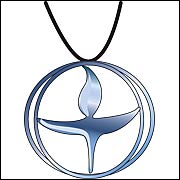Embrace spiritual complexity
Our minds are open; our hearts and hands are not.
For example, when my congregation set about “becoming multicultural,” we set appropriate rational goals, such as hiring a person of color. But when the members of our leadership team were asked what stands between us and the “beloved community,” half our answers were essentially fear—fear of doing the wrong thing and of causing conflict. We seemed to have little confidence in love overcoming fear. Our hearts seemed a bit frozen.
And our hands? We like to be helping those in need, both near and far. But we have trouble recognizing how our upper-middle-class lifestyle contributes to inequality in our world. We help create the people in need that we like to help. As a congregation, we’re not ready—even rationally—to see ourselves, personally, as part of the problem.
Unitarian Universalist culture is dear to me because I rarely experience such intellectual acceptance of life’s complexity. But most of us are severely challenged in accepting the emotional and physical contradictions in life.
This is where I personally feel too much alone. I yearn for others who openly acknowledge their deep life experiences of failure, shame, and even “sinfulness.” Such feelings are central to our humanity. Sharing them is essential to community.
At one time I worked for an ecumenical church council that discussed the problem of “Christian triumphalism,” the belief that Christianity is the best religion and will in the end win over the others. I think there is also a problem of “UU triumphalism,” the belief that our religion is the best, and that collectively we ourselves are the best human beings, the most rational, open-minded, and devoted to the pursuit of objective truth.
Maybe so. But we are desperately needy for deep contact with people whose hearts have learned humility and equality. In the struggle to become multicultural, these are the values that will see us through the difficult times. They are values one cannot learn without suffering—no matter one’s skin color or other kind of identity. Are UUs open-minded enough to acknowledge our suffering? I hope so.
For a guide to related articles, read "What is UU culture?"
blog comments powered by Disqus







